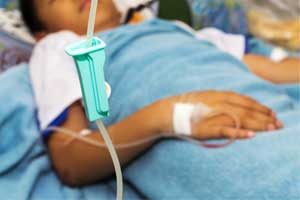- Home
- Editorial
- News
- Practice Guidelines
- Anesthesiology Guidelines
- Cancer Guidelines
- Cardiac Sciences Guidelines
- Critical Care Guidelines
- Dentistry Guidelines
- Dermatology Guidelines
- Diabetes and Endo Guidelines
- Diagnostics Guidelines
- ENT Guidelines
- Featured Practice Guidelines
- Gastroenterology Guidelines
- Geriatrics Guidelines
- Medicine Guidelines
- Nephrology Guidelines
- Neurosciences Guidelines
- Obs and Gynae Guidelines
- Ophthalmology Guidelines
- Orthopaedics Guidelines
- Paediatrics Guidelines
- Psychiatry Guidelines
- Pulmonology Guidelines
- Radiology Guidelines
- Surgery Guidelines
- Urology Guidelines
Outpatient parenteral antimicrobial therapy: IDSA Updated Guideline

The Infectious Diseases Society of America (IDSA) has released an updated clinical practice guideline on outpatient parenteral antimicrobial therapy (OPAT).
The guideline, published in the journal Clinical Infectious Diseases, is intended to provide insight for healthcare professionals who prescribe and oversee the provision of OPAT. It considers various patient features, infusion catheter issues, monitoring questions, and antimicrobial stewardship concerns.
OPAT has long been the standard of care to treat an infection that requires IV antimicrobials because it is less expensive than hospital-based treatment and is preferred by most patients. Since the previous guidelines were published in 2004, three large studies have found this strategy to be safe: there is no difference in the number of adverse events related to OPAT compared to hospital-administered IV antimicrobial therapy.
Key Recommendations:
Patient Considerations
- Patients (or their caregivers) should be allowed to self-administer OPAT.
- Patients (or their caregivers) may be allowed to self-administer OPAT at home without visiting nurse support as long as there is a system in place for effective monitoring for vascular access complications and antimicrobial adverse events.
- No recommendation can be made about whether persons who inject drugs (PWID) may be treated with OPAT at home.
- Elderly patients should be allowed to be treated with OPAT at home.
- No recommendation can be made regarding whether infants aged <1 month may be treated with OPAT at home.
Antimicrobial Utilization
- In patients with no prior history of allergy to antimicrobials in the same class, the first dose of a new parenteral antimicrobial may be administered at home under the supervision of healthcare personnel who are qualified and equipped to respond to anaphylactic reactions.
Vascular Access Devices
- In adult patients needing short courses of OPAT (less than 14 days), a midline catheter (MC) may be used rather than a central venous catheter.
- Mandatory use of a central catheter over a noncentral catheter for OPAT with vancomycin is not necessary. No recommendation can be made for choice of vascular catheter for OPAT with other vesicant antimicrobials such as nafcillin and acyclovir.
- For patients with advanced chronic kidney disease (CKD) requiring OPAT, a tunneled central venous catheter (t-CVC) is recommended rather than a peripherally inserted central catheter (PICC).
- No recommendation can be made about whether patients who require frequent courses of OPAT should have a long-term central catheter (LTCC) left in place between courses.
- It is not necessary to remove a vascular access device if catheter-associated venous thromboembolism (CA-VTE) develops during OPAT, as long as the catheter remains well positioned and arm pain and swelling decrease with anticoagulation.
- No recommendation can be made regarding the need to treat patients with a history of prior CA-VTE with prophylactic oral anticoagulation while on OPAT.
- For most children requiring OPAT, a PICC should be placed rather than a LTCC.
Monitoring
- Serial laboratory testing should be monitored in patients receiving OPAT.
- Vancomycin blood levels should be measured regularly throughout the course of OPAT treatment.
- No generalized recommendation on the frequency of outpatient follow-up can be made for patients treated with OPAT.
Antimicrobial Stewardship
- All patients should have infectious diseases (ID) expert review prior to initiation of OPAT.
For further reference follow the link: https://doi.org/10.1093/cid/ciy745

Disclaimer: This site is primarily intended for healthcare professionals. Any content/information on this website does not replace the advice of medical and/or health professionals and should not be construed as medical/diagnostic advice/endorsement or prescription. Use of this site is subject to our terms of use, privacy policy, advertisement policy. © 2020 Minerva Medical Treatment Pvt Ltd